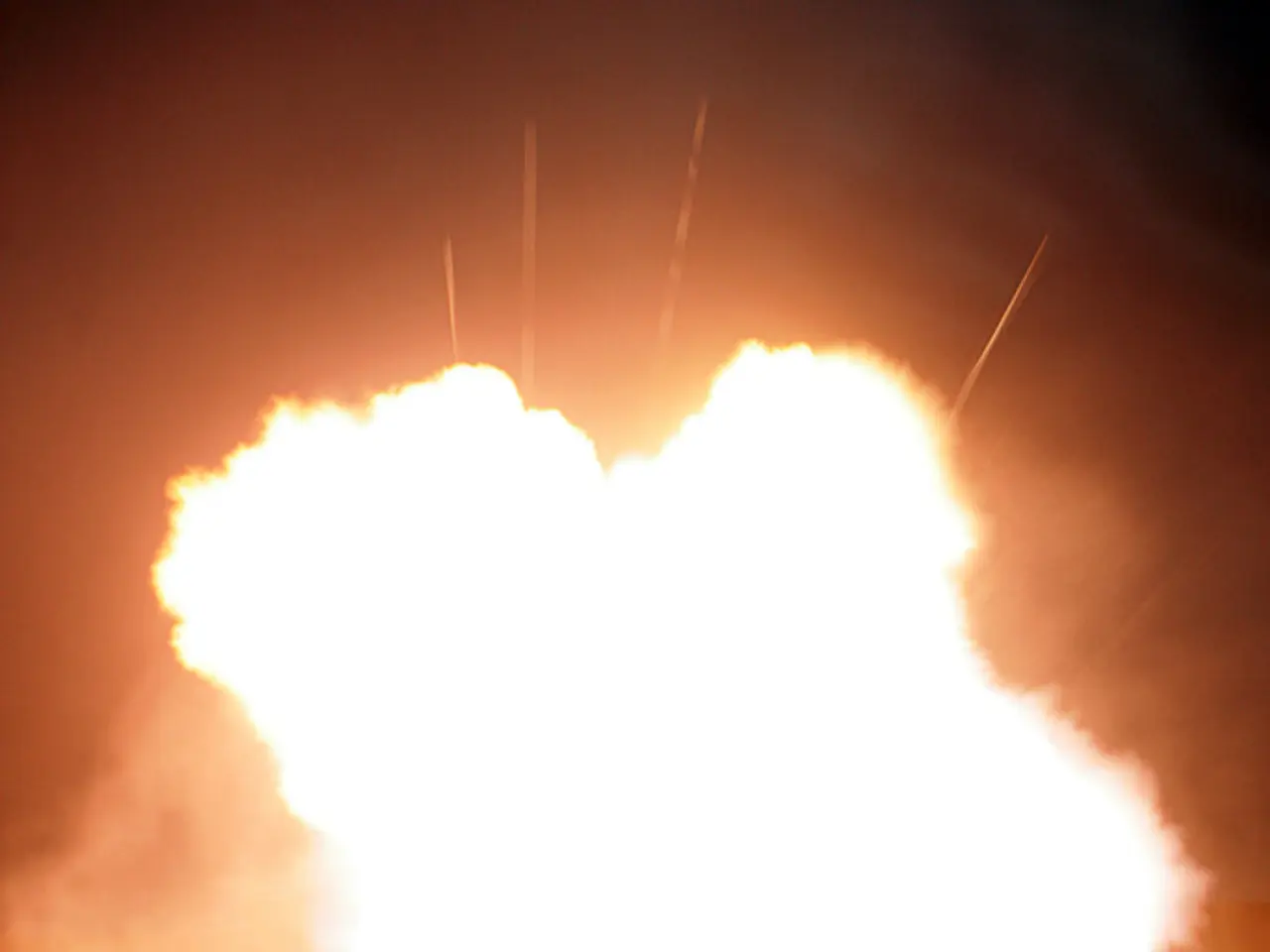Moscow Announces End to Withdrawal of Land-Based Nuclear Missiles - Moscow Announces Abandonment of Disavowal of Ground-Based Nuclear Missiles
In a series of events that signal a renewed arms competition, the Intermediate-Range Nuclear Forces (INF) Treaty, signed in 1987 by Mikhail Gorbachev and Ronald Reagan, has effectively collapsed. This treaty, which called for the elimination of all land-based ballistic missiles and cruise missiles with shorter ranges of 500 to 1000 kilometers and medium ranges of 1000 to 5500 kilometers, is no longer in effect following the U.S. withdrawal in 2019.
The U.S., citing Russian non-compliance, formally withdrew from the treaty in 2019. This decision has led to a series of escalating tensions, particularly in Europe. The U.S. President, not explicitly mentioned in this article, has been involved in the planning of the missile deployment in Germany, which includes the newly developed hypersonic weapons, said to reach further than previously stationed land systems. Among the U.S. weapons planned for Germany are cruise missiles of the Tomahawk type, SM-6 air defense missiles, and hypersonic weapons.
The deployment of U.S. missiles in Europe is a response to the presence of Russian missiles in Kaliningrad, a Russian exclave. Russia has stationed nuclear-capable Iskander missiles in Kaliningrad, which could potentially hit German cities with its medium-range weapons. This U.S.-Germany cooperation to deploy such missiles in Europe, starting in 2024, has been viewed by Moscow as destabilizing and in violation of the INF Treaty framework.
Russia, initially maintaining a unilateral moratorium on missile deployment while monitoring U.S./NATO actions, ceased adhering to the disarmament agreement following the U.S. withdrawal. In late 2024 and 2025, Russia tested and deployed the Oreshnik missile, a medium-range weapon previously banned under the INF Treaty, in military operations in Ukraine and Belarus. In early August 2025, Moscow formally declared it no longer considered itself bound by the INF Treaty, citing NATO's anti-Russian policies and specific U.S. deployments and training exercises in Europe as justification.
Vladimir Putin, the Kremlin leader, had previously threatened to respond "mirror-like" to the planned U.S. deployment of missiles in Germany in 2026. Weapons for this response from Russia are reportedly nearing completion, as stated from the Kremlin last year. The collapse of the INF Treaty after nearly four decades raises concerns about a new strategic arms race in Europe and nearby regions.
[1] The Washington Post [2] BBC News [3] The New York Times [4] Reuters
- The collapse of the Intermediate-Range Nuclear Forces (INF) Treaty has sparked discussions about community policy and politics, as various news outlets, including The Washington Post, BBC News, The New York Times, and Reuters, have reported on the potential implications for employment policy, with several nations considering their strategies for missile deployment and defense.
- The escalating war-and-conflicts situations in Europe and nearby regions, fueled by the collapse of the INF Treaty, have prompted general news agencies to focus on employment policies related to the military sector, as nations prepare for potential employment increases within their defense forces due to the emergence of new strategic arms races.







